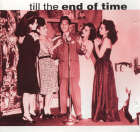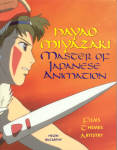|
The AACP Newsletter |
||
| Since 1970 | Asian American Curriculum Project, Inc. - Books for All Ages | August 2003 |
| Newsletter Home Page | Event Schedule | Editor's Notes | Featured Books |
|
Reproduced from larryching.com With permission from the author Ben Fong-Torres
|
||||||||||||||||||||||||||||||||||
Up Coming EventsHere are some events that AACP will soon be attending. Invite us to your events.
Give Us Your FeedbackPlease feel free to send us your reviews, comments, and book suggestions. You can contact us at -aacpinc@asianamericanbooks.com Addition to the AACP Link PageThank you Cynthia Konda for giving us the address to the Okasan & Me website. Cynthia's book and CD were featured in the July newsletter.If you are an author, have a website, and are not already on our Link Page, let us know about your site. Thanks. |
Editor's MessageHello everyone. As you may have guessed from the articles and list of sale items at the bottom, this month's theme is multi-media. See, we are more than just a bookstore :). Our topics in the newsletter will vary widely from month to month. If you have some particular area that you wish for us to cover, please feel free to give us your feedback.
2004 Calendar For those of you that know of some company or organization that would like to help sponsor the printing of the calendar, we could definitely use your help too. You could even put in an advance order and use the calendars for your organization's fundraising. Give us a call or email. We'd be glad to work with you. One last thing, if you have some corrections or additions to the text of the 2003 calendar that you'd like us to make for the 2004 calendar, please email your suggestions to me as soon as possible.
Thank You Thank you Ben Fong-Torres for showing us his new CD of Larry Ching's music and for letting us reuse one of his articles. Ben deserves much praise for helping get this CD made and making Larry Ching's last days happy ones. For anyone that enjoyed the documentary on the Forbidden City nightclub or anyone that was actually there, this CD is something that you must have. I hope I'm not over-doing this and sounding too much like an advertisement :), but our sale price is a really great bargain. The last time I checked Amazon's price on this CD, it was $15.99. Have a wonderful remainder of the summer. Bye.
Leonard Chan |
|||||||||||||||||||||||||||||||||
|
|
||||||||||||||||||||||||||||||||||
|
An Editorial by Shirley Yang
|
||||||||||||||||||||||||||||||||||
The following books are discounted for subscribers to our newsletter. The discounts on these books end September 7, 2003. | |

|
Till the End of TimeBy Larry ChingProduced by Ben Fong-Torres 2003, Audio CD.
CD Description -
View Additional Information
|

|
Hyphen Magazine
Publisher Yuki Tessitore |

|
Hayao Miyazaki
By Helen McCarthy |

|
Rabbit in the MoonProducer/Director/Cinematographer/Editor - Emiko OmoriCo-Producer - Chizuko Omori Editor - Pat Jackson 1999, 85 minutes, video.
Video Description -
View Additional Information
|
Copyright © 2003 by Asian American Curriculum Project, Inc. (a non-profit organization since 1970)
Visit our website at AsianAmericanBooks.com
To unsubscribe simply reply to this email and type "REMOVE" in the subject line.